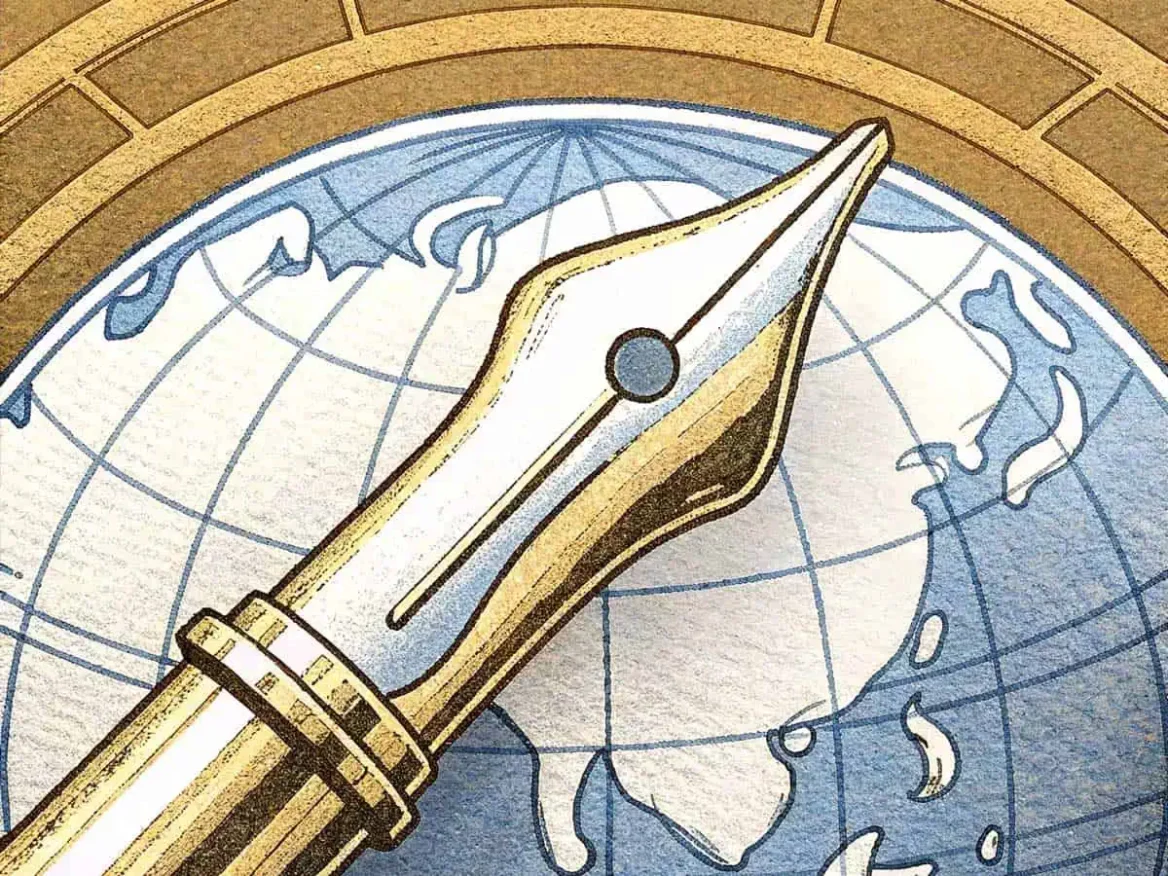In this article, I describe the in regulation of copyright in the Copyright Act, and the exceptions in the law, specifically according to sections 7 and 8 of the Copyright Act.
to the creator of a work. For example, the author of a novel is the creator in the copyright sense, not the publisher. This means that the creator is entitled to the exclusive right to publish or reproduce these works. Any income generated in the process belongs to the creator.
However, there are exceptions to this main rule. For example, the North Netherlands District Court (ECLI:NL:RBNHO:2020:11537) ruled that an employee had to repay an amount of €190,000 to his employer. In this case, it was in fact found that this amount should be seen as copyright income for musical works that accrued to the employer.
When is there a copyright exception?
The famous Article 7: the text
Section 7 of the Copyright Act is an exception to the general rule of law. The article reads as follows: ‘If the work, performed in the service of another person, consists in the creation of certain literary, scientific or artistic works, then, unless otherwise agreed between the parties, the maker of those works shall be deemed to be the person in whose service the works were created.’
The text shows that, provided all the conditions are met, an employer acquires the rights and hence the income arising therefrom. Indeed, the employer must be able to benefit from the works created in the course of employment.
However, there are, again, conceivable exceptions to this.
The famous Article 7: the meaning
In practice, employees and employers often fail to reach concrete agreements regarding intellectual property rights. Article 7 and related Procedural law then come into play. However, an analysis shows that certain conditions must be met for copyright to accrue to the employer.
First of all, there must be an employment contract. These are agreements that qualify as a contract within the meaning of Article 7:610 of the Civil Code. For an agreement to qualify as an employment contract, a number of requirements must be met.
There must be work, in the service of another, for pay and for a certain period of time. Because of these requirements, assignment and freelance work therefore fall outside the provision of an employment contract. This therefore means that for freelancers, Article 7 does not normally apply.
Whether or not within the job description
Furthermore, the work created must fall within the employee’s job description. For example, if a legal assistant composes a piece of music within working hours, then he is entitled to this copyright. However, writing a blog like this one falls within the job description. The copyright therefore belongs to the employer.
However, if there is an incidental express order from the employer to create one or more particular works, which is therefore not actually part of the job description, the copyright will still belong to the employee (HR 19 January 1951, NJ 1952/37 (Van der Laan/Schoonderbeek)).
The Copyright Act and the use of works
Furthermore, Section 7 of the Copyright Act oversees the use of certain works. That is, the employer must have some degree of control over the form in which the works are disclosed. I
In the case of scientific research at the university, the employer has no control over how the research results are designed. For this reason, copyrights relating to scientific research belong to the creator, and not to the university.
Article 7: Additional duty
Freedom of contract otherwise remains the starting point. Section 7 of the Copyright Act is regulatory or supplementary law. This means that parties may deviate from it. They can therefore agree in an agreement that the copyrights remain with the employee.
Copyright regulations can be summarised as follows. The basic rule is that copyright belongs to the creator of a work. Section 7 of the Copyright Act, however, even though there are clear exceptions, leads to the fact that income from certain works does not belong to the creator but to his employer.
This same area of tension can be seen in discussions about personality rights linked to copyright. These are so-called moral rights vested in the creator, such as the right to name and the right to oppose alterations and impairment of the work. Procedural law and literature often assume that these moral rights also belong to the employer.
Article 8 and copyright
Another important exception to copyright is provided by Section 8 of the Copyright Act. Under this section of the law, a public institution, association, foundation or company can still claim the copyright that actually belongs to the creator, provided all the conditions that follow from its provision are met.
Under this section of the law, the first requirement is to be a public institution, association, foundation or company. This means it could be a political party, but also, for example, an advertising agency.
Furthermore, the disclosure must be considered as originating from it, without mentioning any natural person as its creator. Suppose an advertising agency, by means of a commission contract, assigns someone the task of having a beautiful poster designed as an advertisement.
If the agency brings out this work without any mention of the creator, the copyright still does not fall into the hands of the creator. In such a case, the creator can only claim his copyright if it is proved that the publication was unlawful under the intended circumstances. Again, this is supplementary law. Parties can therefore agree otherwise. It is therefore advisable for the contractor to make clear arrangements when entering into an agreement, so that you will not be left empty-handed later.
Copyright law… in summary, according to Good Law
In principle, copyrights belong to the creator. Sections 7 and 8 of the Copyright Act constitute exceptions to this. Before starting an agreement, it is important to clearly delineate the position of copyrights, so that unpleasant discussions can be avoided in the future; both in the case of an employment contract and an assignment contract. Good Law specialises in providing copyright advice and can assist both employer and employee in this matter.


